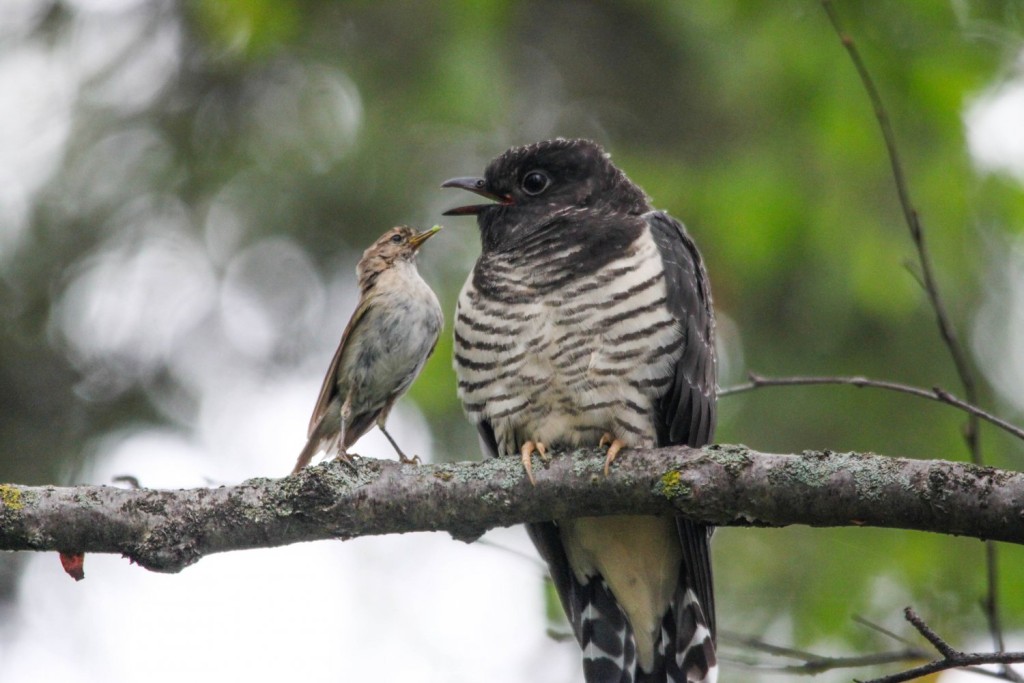March 18, 2022
Why is the cuckoo not such a bad mother?
The expression "mother cuckoo" is firmly entrenched in our society, especially when it comes to mothers who do not care too much about their human cubs. But here are three facts that will change your idea of cuckoos and their offspring.
Fact #1
As you know, the cuckoo feeds on insects, which often have the unpleasant feature of being poisonous furry caterpillars. Her stomach is arranged so that the "hair" of the caterpillars dig into a special coating of the walls, and then this coating is removed from the stomach, thereby making the cuckoo "poison-resistant", which cannot be said about the chicks. Despite the irrepressible appetite of cuckoos, they have delicate and small necks, that is, they cannot swallow caterpillars. This means that the cuckoo is able to kill its brood with improper nutrition.
Fact # 2
If the cuckoo had been an exemplary mother, her offspring would definitely not have survived.
- One bird during the summer season produces up to 30 eggs at intervals of one to three days.
- One cuckoo is able to eat up to 300 meals a day.
Fact # 3
Being a "difficult child", the cuckoo gives a great deal of trouble. The first thing after being born, he throws out the remaining eggs and chicks from the nest so that he gets more space and food. The foster parents follow the brothers and sisters, he pushes them out of the nest, screams angrily, sending them in search of food. Ornithologists are sure that about 10% of bird offspring die because of cuckoos.

(Источник: National Geographic Russia)
Thus, it turns out that the cuckoo throws its eggs into other people's nests not because it is a bird of "free flight" and has other plans for life besides raising children, but because it simply cannot raise healthy offspring.
An interesting observation:
Apparently, cuckoos are enterprising and choose for their offspring the nests of only those birds whose eggs they know. Swifts, nightingales, warblers, burrows, shrikes, sandpipers, larks, wagtails can become foster parents. There is an assumption that cuckoos lay eggs to those species in whose nest they have grown themselves.
The fact is that the forest in which cuckoos live, as a rule, does not suffer from leaf parasites. The insatiability of cuckoos grows into their dignity with age: adult cuckoos destroy many serious pests. An adult cuckoo can eat up to 100 caterpillars in 1 hour. And if harmful insects have bred in the forest where voracious birds live, the cuckoos will not calm down until they have exhausted everyone.
Subscribe to the newsletter and stay up to date with the latest news together with the Notivory Foundation team
Read more
July 31, 2024
April 12, 2024
April 5, 2024